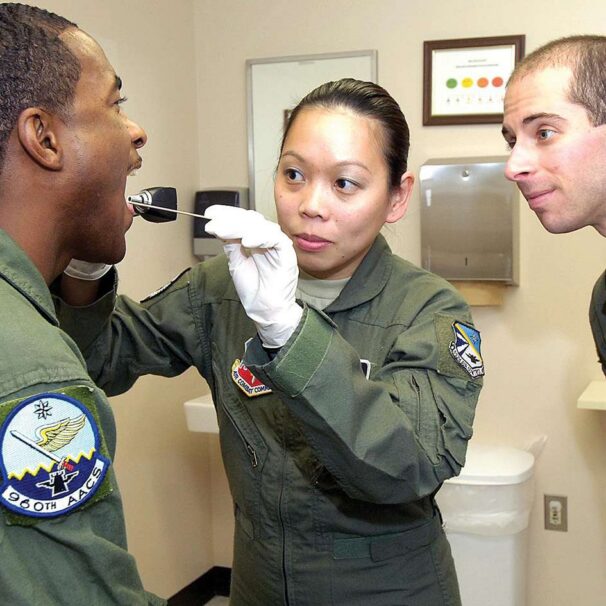HealthProviders DB is a comprehensive database of healthcare providers, including a complete directory of all Aerospace Medicine Physicians.
Preventive Medicine Healthcare Taxonomy Code 2083A0100X
As of today, the following are the total number of Aerospace Medicine Physicians nationally, in your State, and near your location.
Select a State below to view the list by State. Additionally, you can narrow the list by city, among other options, from the Filter Panel, which you can open by clicking the vertical ellipses ⋮ in the upper right corner of the app.
Alaska – Alabama – Armed Forces Pacific – Arkansas – American Samoa – Arizona – California – Colorado – Connecticut – District of Columbia – Delaware – Florida – Federated States of Micronesia – Georgia – Guam – Hawaii – Iowa – Idaho – Illinois – Indiana – Kansas – Kentucky – Louisiana – Massachusetts – Maryland – Maine – Marshall Islands – Michigan – Minnesota – Missouri – Northern Mariana Islands – Mississippi – Montana – North Carolina – North Dakota – Nebraska – New Hampshire – New Jersey – New Mexico – Nevada – New York – Ohio – Oklahoma – Oregon – Pennsylvania – Puerto Rico – Palau – Rhode Island – South Carolina – South Dakota – Tennessee – Texas – Utah – Virginia – Virgin Islands – Vermont – Washington – Wisconsin – West Virginia – Wyoming
Medicare
The following are the total number of Aerospace Medicine Physicians who accept Medicare in your State, the number who have opted out of Medicare, and the total number excluded from participation in Medicare nationwide.
The diagram below shows all the Preventive Medicine Physicians Specializing in Aerospace Medicine across the country, represented by blue bubbles. The larger the bubble, the greater the concentration of providers in that area. Red bubbles represent Medicare-excluded providers, with the larger bubbles indicating a higher percentage of excluded providers in that region. You can change the bubble size to be based on exclusions from the Size menu.
What do Aerospace Medicine Physicians do?
An aerospace physician, also known as an aviation medical examiner (AME) or flight surgeon, is a medical professional specializing in the health and safety of individuals involved in aviation and space travel.
Aerospace physicians play a crucial role in ensuring the health and safety of individuals involved in aviation and space travel.
Their expertise in the physiological effects of flight and the unique medical challenges of these environments is essential for maintaining the highest standards of safety and performance.
What they do
- Performing medical examinations to ensure the fitness of pilots, astronauts, and other crew members
- Providing medical advice and support on the physiological effects of flight, such as altitude sickness, hypoxia, and G-forces
- Monitoring and managing medical conditions that may impact flight safety
- Investigating and reporting aviation accidents from a medical perspective
- Developing and implementing policies and procedures related to aerospace medicine
- Conducting research on the health risks and mitigation strategies associated with aerospace travel
Education and Training
To become an aerospace physician, individuals typically:
- Complete a medical degree (M.D. or D.O.)
- Obtain a residency in aerospace medicine
- Pass the American Board of Preventive Medicine (ABPM) certification exam in aerospace medicine
Career Opportunities
Aerospace physicians can work in a variety of settings, including:
Military aviation units, Commercial airlines, NASA, and other space agencies, as well as research institutions specializing in aerospace medicine.
Skills and Qualities
Successful aerospace physicians possess:
- Strong medical knowledge and clinical skills
- An interest in aviation and space travel
- Excellent communication and interpersonal abilities
- Problem-solving and analytical skills
- Attention to detail and a focus on safety

